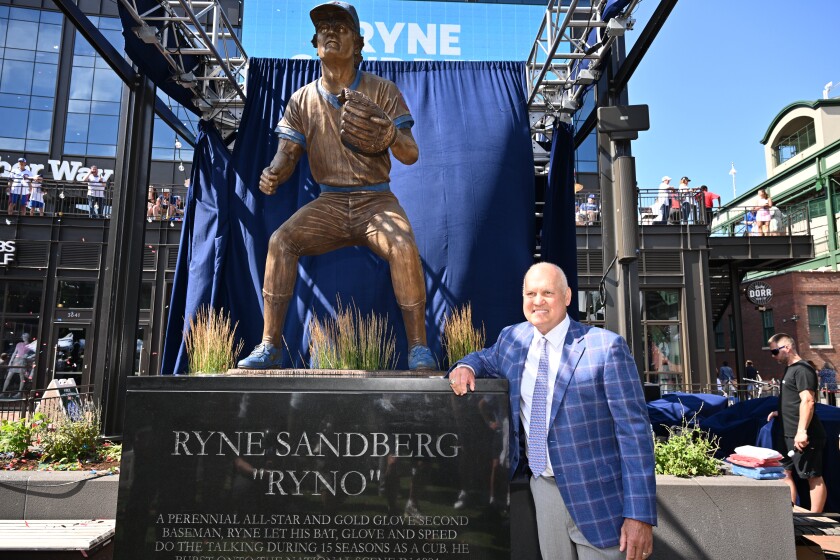The recent passing of Chicago Cubs legend Ryne Sandberg has deeply resonated, particularly with those who experienced his humility firsthand, even in brief interactions. One local hot dog vendor, recounting his encounters at Wrigley Field, shared a profound sense of loss, emphasizing how Sandberg, despite his iconic status, treated everyone as an equal. This deeply personal perspective offers a poignant reflection on a man celebrated not only for his athletic prowess but also for his exceptional human qualities, solidifying his legacy far beyond the baseball diamond.
While Ryne Sandberg’s Hall of Fame baseball career is well-documented, his character as a “Hall of Fame human being” often goes unappreciated. This sentiment, shared by those who met him, paints a picture of a down-to-earth individual whose genuine nature left a lasting impression on everyone he encountered, from fans to stadium staff. His unassuming demeanor in public life contrasted with his formidable presence on the field, highlighting a rare blend of talent and profound personal integrity that truly defined him.
Shifting focus, the article also explores the intriguing phenomenon of significant Catholic support for the Republican Party, a topic that sparks considerable debate. Many question how religious leaders, dedicated to Christ’s teachings of “love and forgiveness,” can reconcile their faith with a political platform that, in their view, appears to undermine basic social safety nets for the poor and vulnerable. This ideological divergence raises fundamental questions about the intersection of faith, politics, and social responsibility within American society, particularly in the context of Illinois Politics.
This perceived contradiction prompts critical reflection on the ethical obligations of religious institutions and their leaders. The concern centers on whether supporting policies that might reduce access to essential healthcare, food, and shelter aligns with core tenets of compassion and charity. Such discussions are vital for understanding the evolving landscape of religious and political alignment, compelling a deeper examination of values in public life and among the Catholic Church Politics sphere.
Another pressing issue highlighted is the ongoing debate in Illinois regarding the legalization of fireworks. Despite prohibitions, the sky around the Fourth of July remains ablaze, fueled by purchases from neighboring states or illicit online sales. This situation leads to substantial lost sales tax revenue for both the state and cities, prompting a strong argument for legalizing Fireworks Legalization under strict regulations. Proponents suggest that controlled sales could significantly boost public coffers while addressing the persistent demand.
Furthermore, the article touches on a widely circulated video allegedly showing Donald Trump Golf course etiquette in Scotland, which stirred controversy. While some interpreted the footage as potential cheating, those familiar with the former president’s approach to the game often explain it away as part of his unique handicap system and the notion of “his course, his rules.” This incident, while minor in the grand scheme, adds another layer to the public’s perception of high-profile figures.
Finally, a brief mention addresses Northwestern University facing a freeze of $800 million in federal funding due to accusations of fostering antisemitism. This development underscores broader societal anxieties surrounding free speech, campus environments, and institutional accountability. These diverse narratives, from individual legacies like Ryne Sandberg’s to complex sociopolitical dilemmas, collectively paint a vivid picture of current public discourse.






Leave a Reply